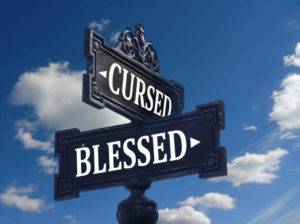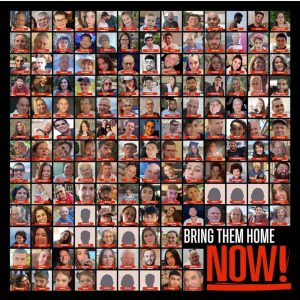The incomparable Neshama Carlebach shares her beautiful rendition of Yehi Shalom.
Wishing everyone Shabbat Shalom, and may peace come soon to all.
The incomparable Neshama Carlebach shares her beautiful rendition of Yehi Shalom.
Wishing everyone Shabbat Shalom, and may peace come soon to all.
Playing for Change has used music to share our humanity and the transcending power of music across cultures and nations.
Redemption Song is one of Bob Marley’s great gifts.
Freedom and Peace is our hope.
Bring them Home!
Shabbat Shalom
In our welcome of Shabbat, we share Ana BeKoach, a prayer asking we be released from the spiritual, emotional, and physical things that bind us. It invokes the power of God’s name through Jewish mysticism. In this troubling time, may we be freed.
Shir Appeal shares its acapella rendition with us here.
Shabbat Shalom
As 2023 ends, I pray for the hostages to come home and we can find a way to peace.
To a better 2024.
As we welcome Shabbat and the secular New Year, I wanted to share this poignant song from Benaia Barabi “Zeh BSeder” It’s Okay sung with survivors from Nova.
May we find peace this year.
Shabbat Shalom
As we celebrate the holiday of light and welcome Shabbat,
We struggle through this darkness and together we will get through.
Yachad Nenetzach
Chag Urim Sameach
Shabbat Shalom
The situation is fluid, and things are different from what we thought. We have come to an inflection point, and what happens next depends entirely on how boldly we are willing to consider acting.

It is relatively easy to kill people but almost impossible to kill an idea. Hamas has shown it knows no limit to the extent it will go to achieve the dual goals of killing Jews and eliminating Israel.
Israel thought it could manage the situation, lulling Hamas through what are essentially bribes and occasionally “mowing the lawn,” that obscene notion that periodically Israel engages in a military action to repress the militants. This is similar to blowing on the boiling pot of pasta to keep it from boiling over.
The pot boiled over, and the ensuing pogrom was devastating.
Furthermore, Hamas retains substantial control. The delay in releasing hostages on Day 2 of the truce showed their continued capacity to manage the situation psychologically. Equally distressing was the celebration in the West Bank because the jubilant welcome home to the released prisoners was met with Hamas flags instead of only Palestinian flags. A weak Palestinian Authority is losing control, and Hamas is ascendant.
And an uncontrolled group of Jewish right-wing extremists is engaging in violence against Palestinians that could only be understood as ethnic cleansing of the territory.
The situation is dire and requires bold action.
Strangely, a scene from The Godfather movie keeps running in my mind. As Don Corleone grieves his murdered son, he looks up and, from the depth of his pain, declares the killing has to stop. Peace is required even though vengeance courses through the blood. For us, this is that moment.
The killing must stop. Recognition by each side is required, and we must forge a way forward. Is Israel able to do this, and if so, who is courageous enough to make that declaration and commitment?
We’ve learned that ignoring the other side and building walls is not a solution. Walls cannot be high enough or thick enough to provide security. We also cannot do it alone.
Many are vested in maintaining the status quo of hostility, hatred, and turmoil. But others have a clear interest in seeing peace in the region. These nations need to join in the effort to work with Palestinians and Israelis to build trust and an infrastructure of hope. Together, we can realize a vision of dignity and security for both people who claim a right to the region. And those who envision a future for their children to live in a world without violence must be convinced we are all committed to their future. Building trust out of the rubble of destruction and pain that now exists will take time. But now is the time to start.
The killing must end, and now is the time to start on a path forward.
A Shabbat of Ambivalence
As we enter Shabbat, some hostages have been returned. Their ordeal is far from over, but they are home. Now we hope these souls begin the process of healing.
Traditionally we offer the Birkhat HaGomel, but their struggle is far from over. The emotional toll will continue long after physical pain has subsided. They have been brought through a perilous journey, but the journey to wholeness and peace has just begun.
The sentiment of the Birkat Gomel is a prayer of gratitude, but it is also wishful thinking. May those who have struggled find refuah shleimah.
We also turn our thoughts to those who remain captive, pawns to be played in a horrible chess game in which victims are often sacrificed by others. May they be safe and treated with basic humanity. We pray for their safe return as well.
Shabbat Shalom
Bring Them Home Now
 We are anxiously hoping the current negotiations for the return of some kidnapped hostages will bring our people home soon.
We are anxiously hoping the current negotiations for the return of some kidnapped hostages will bring our people home soon.
It is a deal with the devil, but you do what you must do.
However, the devil is in the details, and the details are troubling.
We have been unable to get “proof of life” for all held captive. Why is this the case? Is Hamas not in control of all the hostages? If true, it does not bode well for those remaining in captivity.
Why has the Red Cross been unable to check on the welfare of the hostages? This, too, is an ominous sign that Hamas may not be in control and our people are not being treated humanely.
Why are the negotiations 3 to 1? For every Israeli returned, three people are returned to Hamas. This seems an admission, particularly by Hamas, that both sides value Israeli human life more than Palestinians’.
These issues are distressing, But the answers to these questions offer insights into how things will progress after this deal is concluded.
Let us bring home those we can and work to bring the rest back as quickly as possible.
On our last night in Tel Aviv, we had a wonderful dinner and began reflecting on what we saw and what it meant. As we stepped toward our bus, the sirens went off. And we swiftly moved to the shelters.
Israelis now measure distance in the time it takes a rocket from Gaza to reach a destination. On this trip, our distance was between 20 and 90 seconds. Tel Aviv is 90 seconds away. But as I looked southward, I saw the flash of the Iron Dome taking out a rocket. I didn’t wait to see a second one. We were fine. But to say the least, it is an odd experience. I guess this is something that Israelis never get fully used to but learn to live with.
We entered Ben Gurion airport and were escorted to a particular security check-in. This esteemed bunch of American Rabbis were to be treated as VIPS. And the sirens went off. And swiftly, we went into the shelters, just like everyone else. The moment passed, and we all emerged, but Ben Gurion didn’t return to normal. Security and travelers engaged in the typical dance that is done at departure. But this time, it seemed different. I felt discomfort. The airport routine wasn’t quite the same. The dance was off by a beat. The process seemed longer, as though the thorough checking still needed double-checking. The ramp leading to the departure area was lined with pictures of hostages, just like the ramp on the arrival side. The message was to remember the hostages from the first moment you entered Israel and as the last thing as you left.
The airport was empty; El Al and Emirates were flying. One or two other airlines were on the board, but the major carriers were not listed, and half of the departure floor was empty. 
We left a different place than the one I remembered from previous travels, and yet the emotional and spiritual connection remain strong, perhaps stronger.